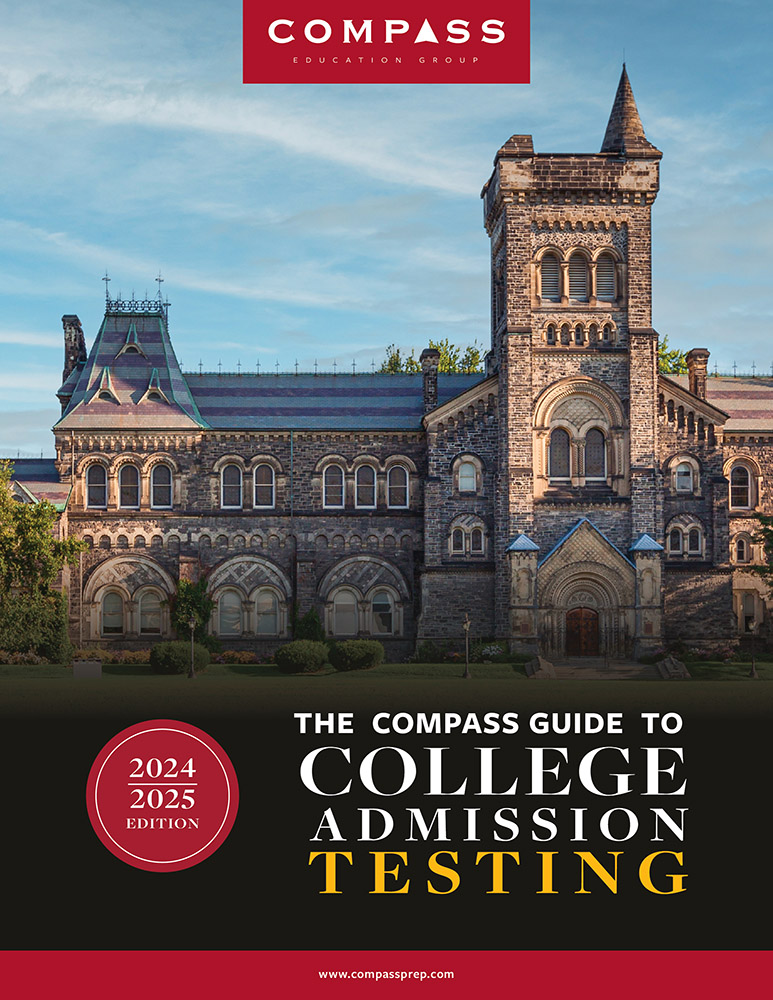 In light of the June 6th SAT debacle, we have brainstormed several ways that students can safeguard against mishaps on testing day.
In light of the June 6th SAT debacle, we have brainstormed several ways that students can safeguard against mishaps on testing day.
1) Know the Test and Its Instructions
The first goals of PSAT, SAT, and ACT students should be to get familiar with testing order, problem types, section lengths, and timing. Except during major changeovers such as the redesigned SAT in March, the exams and their instructions remain constant. Should you guess on every problem or leave some blank? How is the exam scored?
2) Practice Under Pressure
Most students will at least work through a test or two from the Official SAT Study Guide or from a commercial service, but many fail to practice under test pressure. Compass offers free, proctored practice tests to students, so we are not unbiased on this matter. But the reason we invest in this expense is because it helps students develop a deep understanding of test structure and timing and how they will respond on test day. If you are not able to find a place that offers practice tests, have a parent serve as a proctor and enforce test rules on timings, breaks, and lack of interruptions. It is a very different way of working than simply solving problems as homework.
3) Register Early
Late planning can mean that a student does not get her first choice in test centers. In the worst case, all local test centers can fill-up. Because of security concerns, testing stand-by has become difficult, if not impossible. Students may have to drive more than an hour away on what is already an early Saturday morning. Getting a first choice can mean taking the test at a familiar school where you are less likely to be rattled if something goes wrong.
4) Speak Up
Inexperienced proctors and poor testing conditions are the two biggest test day complaints that we hear. Speak up if there is a problem. Students are not kicked out of a session for asking questions (unless you are being repeatedly disruptive). Proctors have to follow scripts, and oftentimes they cannot answer questions directly. This may seem unkind, but the information students are provided needs to be fair and universal. That does not mean that you should not ask your questions anyway. If a proctor makes a mistake, you want to catch it early (e.g. if they write the wrong starting time on the board, clarify the start and stop times and where the official time is being kept). If the band is playing next door or cold air is coming in through an open window, ask a proctor to speak to a supervisor and see if anything can be done. Some situations are out of their control, but it’s amazing what a motivated proctor (often teachers at the school) can do.
5) Borrow a Watch from an Old Person
Cellphones are wonderful, satellite-accurate timing devices. They are also forbidden in the testing room. Do not depend on what a proctor writes on the board as time clicks away (they have no obligation to inform you of how much time is left). Do not count on a working clock in your classroom. Just make sure that you do not use any beeping timers — that can get you kicked out.
6) Stay Calm and Carry On
In the event of an unexpected event, try not to get caught up. It’s similar to a courtroom where the judge has to kick off jurors who discuss the case. ETS will invalidate scores if it feels that the security of the test has been breached because students have had improper access to the test booklets (a proctor leaves the room for several minutes to consult with the supervisor) or discussed the test during an event such as a temporary building evacuation. Stay focused and try to concentrate on the next question rather than dwelling on what is out of your control.

